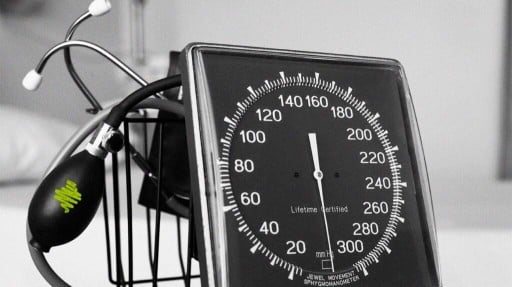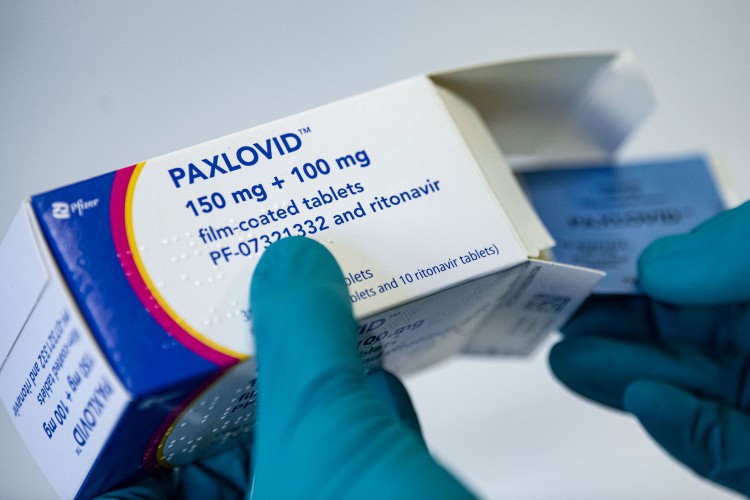
- Researchers are reporting that hypertension and high cholesterol before age 55 can increase the risk of heart disease later in life.
- They note that this risk remains, even if the individual takes steps to control these conditions after age 55.
- The researchers said that heart disease is typically a result of a cumulation of risk factors, including genetics. However, as people age, genetics play less of a role.
Having high blood pressure and/or high cholesterol before age 55 can increase the risk of heart disease, even in people who improve those conditions as they get older.
Those findings are part a
The researchers used a 3-sample randomization analysis of participants who were registered with the UK Biobank.
There were three groups in the analysis:
- 136,648 people had high cholesterol (LDL-C)
- 135,431 people had elevated systolic blood pressure (SBP)
- 24,052 people had coronary heart disease
What researchers learned from heart disease study
The researchers noted that when high LDL-C and SBP could be predicted based on genetics, there was a risk of coronary heart disease, regardless of the age of diagnosis.
They also pointed out that those with elevated SBP and LDL-C in early to midlife were at an increased risk of coronary heart disease, independent of their SBP and LDL-C levels in later life.
The researchers also noted that coronary heart disease is generally a result of cumulative exposure to risk factors, such as SBD and LDL-C, and these can have long-lasting implications on a person’s risk.
They added that the effects of SBP on coronary heart disease diminished with age, nothing that this could be due to a
In their discussions of study results, the researchers also point out that their findings are consistent with randomized controlled trials that suggest the use of blood pressure medications and statins can help, even in old age. Despite this, they say the use of statins and blood pressure medicine often declines with age.
The researchers suggest that treating young individuals with elevated SBP and/or LDL-C is essential to minimize accumulated exposure throughout their lives.
“Our findings suggest that old age alone should not be a reason to withhold otherwise appropriate LDL-C and BP-lowering treatments, because the effect of genetically mediated LDL-C and SBP on the incident risk of [coronary heart disease] is consistent throughout life,” they wrote.
Experts weigh in on cholesterol, hypertension study
“We have known that high blood pressure and elevated cholesterol are risk factors for heart disease,” said Dr. Cheng-Han Chen, an interventional cardiologist and medical director of the Structural Heart Program at MemorialCare Saddleback Medical Center in California who was not involved in the research. “This study examines the relationship over a long time and adds to our understanding of the relationship in different age groups.”
“It will not change how I treat my patients as I already treat hypertension and high cholesterol throughout a person’s lifespan,” Chen told Medical News Today. “I already treat people under 55 for both high cholesterol and high blood pressure.”
However, Ni said he might be more aggressive in managing cholesterol at a younger age.
“I might talk to my younger patients who have more chances of making changes to diet/lifestyle, better explain the risks, and work with them on changes they can make in their daily lives,” he told Medical News Today.
“As we age, other factors take over, such as smoking, sedentary lifestyle, and poor eating habits, and take over the role of genetics,” Ni added. “When that happens, we need to modify these things to lower our risk of high cholesterol. This study shows that the longer you have high cholesterol, the higher your chance of heart disease.”
“I like the studies using the UK Biobank because they have a large pool of people to draw from,” Ni said. “The results are reliable.”
The researchers noted that their study did have limitations. For example, the use of antihypertensives and lipid-lowering medications varied between age groups. To help account for this, the researchers adjusted SBP and LDL-C based on treatment status.
Risk factors for high blood pressure, cholesterol
Experts say that lifestyle factors play a significant role in both high cholesterol and blood pressure.
According to the
- Unhealthy diet, especially those that are high in sodium and low in potassium
- Physical inactivity
- Obesity
- Misuse of alcohol
- Smoking or other tobacco use
The
- Type 2 diabetes
- Obesity
- Diets high in saturated and trans fats
- Physical inactivity
- Smoking
Poor diet, obesity, physical inactivity, and smoking are on both lists.
Related pages
Michael Strahan's Daughter Diagnosed With Medulloblastoma, a Cancerous Brain Tumor
Michael Strahan’s daughter Isabella revealed Thursday that she was diagnosed with and is being treat
:max_bytes(150000):strip_icc()/Health-GettyImages-1161451946-6f3d83b8089547cba526b2567a9e32e2.jpg)
Is It Bad to Drink Coffee on an Empty Stomach?
Many people believe drinking coffee on an empty stomach is unhealthy, but for most people, the pract

Is Paxlovid Still Effective Against New COVID Variants?
Paxlovid, an antiviral therapy for COVID-19, remains effective in preventing severe illness from som

Proper Walking Form: Expert Tips on Posture, Foot Placement, Shoe Choice
Research suggests that it may take far fewer than 10,000 steps a day to see health benefits from wal

Marijuana Users Have Higher Levels of Heavy Metals in Blood, Urine
New research found heavy metals in the blood and urine of people who consumed marijuana.The two meta

‘Fat-Burning Zones' on Cardio Gym Equipment Often Inaccurate
New research shows “fat-burning zone” recommendations on commercial cardio equipment may not provide

